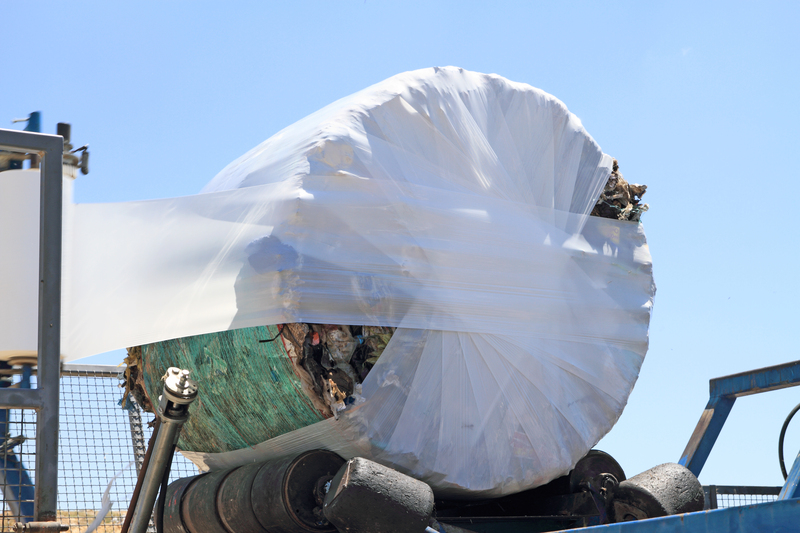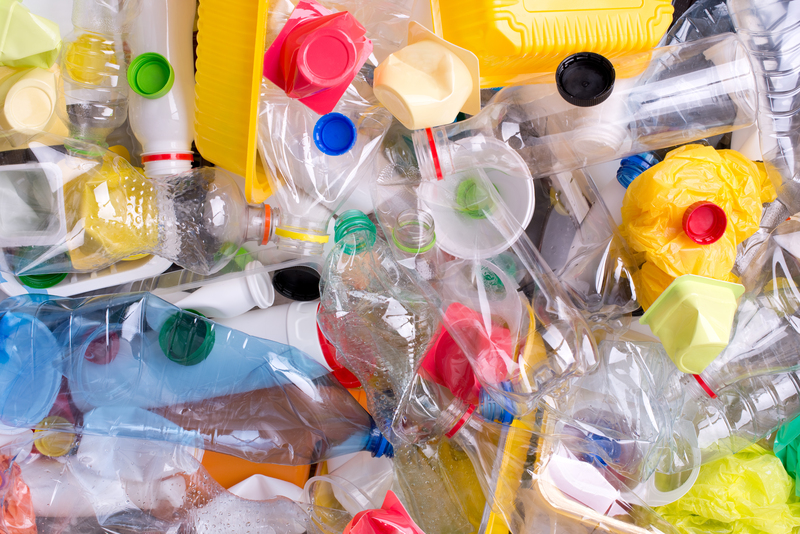Towards Zero Waste: Sustainable Practices in the Office
As environmental concerns grow, organizations seek impactful methods to foster sustainable workplaces. Going "zero waste" in the office is more than a trend--it's a necessary shift for a healthier planet and an empowered workforce. This comprehensive guide explores actionable steps and strategies for achieving zero waste in offices through mindful operations, resource management, culture, and innovation.
Understanding Zero Waste in the Office Environment
Zero waste isn't simply about recycling--it's about rethinking everything we consume, with a focus on reducing, reusing, and redesigning our processes. According to the Zero Waste International Alliance, zero waste involves the conservation of all resources, responsible production, and the elimination of waste sent to landfill, incinerators, or the environment.
Why does this matter in the workplace? Offices are significant contributors to urban waste, from single-use packaging and electronics to paper and food scraps. Implementing eco-friendly office practices not only decreases an organization's environmental footprint but can enhance reputation, reduce operating costs, and promote employee wellbeing.

Benefits of Embracing Zero Waste Office Culture
- Environmental Impact: Offices account for millions of tons of waste annually. Cutting waste helps reduce landfill use, carbon emissions, and resource depletion.
- Operational Savings: By reducing disposable supplies and energy, offices can significantly decrease expenses over time.
- Employee Engagement: Green initiatives foster a sense of purpose and pride, making sustainable-minded staff more productive and loyal.
- Positive Brand Image: Sustainability practices enhance public perception, helping attract eco-conscious clients and top talent.
Key Strategies for Sustainable Office Practices
Towards zero waste, office sustainability begins with a blend of practical procedures and long-term cultural change. Here's how your office can start the transformation:
1. Audit and Analyze Current Waste Streams
*Begin by evaluating your waste:*
- What types and quantities of waste does your office generate?
- Where are the highest waste outputs (kitchens, copy rooms, packaging, events)?
- How is recycling and composting being used?
2. Rethink and Reduce Single-Use Items
- Transition to Reusables: Adopt ceramic mugs, glasses, metal cutlery, reusable water bottles, and coffee cups.
- Smart Procurement: Choose bulk suppliers and products with minimal or compostable packaging. Furnish offices with second-hand or recycled office furniture where possible.
- Eliminate Paper Towels: Install air dryers, cloth towels, or reusable napkins in break rooms and washrooms.
*The top of the zero waste pyramid is "reduce"*--the less your office consumes, the less there is to dispose of.
3. Move Towards a Paperless Office
- Digitize Documents: Use cloud storage, e-signatures, and collaborative digital tools to minimize printing.
- Print Only What's Necessary: Set printers to default double-sided or grayscale to conserve ink and paper.
- Reuse Scrap Paper: Repurpose single-sided sheets for notes or internal drafts.
*Did you know?* Offices globally consume 15 million tons of paper each year. Going digital can drastically reduce this footprint and streamline workflows.
4. Set Up Comprehensive Waste Stations
- Clearly Label Bins: Provide separate, signposted bins for landfill, recycling, compost, and e-waste in easily accessible locations.
- Education and Reminders: Use posters, email campaigns, or digital dashboards to reinforce correct waste sorting.
- E-Waste Bins: Set up containers for batteries, printer cartridges, cables, and old electronics, partnering with certified recyclers.
A comprehensive waste management system is at the heart of a zero waste office strategy.
5. Green Your Office Kitchen
- Stock Reusable Supplies: Provide plates, glasses, mugs, and cutlery to all employees. Phase out plastic stirrers, straws, and cups.
- Compost Food Waste: Set up compost bins and partner with local composting services.
- Encourage Sustainable Eating: Support plant-based meals and host waste-free potlucks or lunch-and-learn sessions.
- Eliminate Bottled Water: Install filtered water stations and encourage use of refillable bottles.
Creating a sustainable office kitchen doesn't just reduce waste--it encourages healthy habits and camaraderie among teams.
6. Implement Sustainable Procurement Policies
- Eco-Friendly Suppliers: Seek vendors offering refillable, recyclable, or compostable office supplies. Consider certified green cleaning products and ethical sourcing.
- Lifecycle Assessment: Factor in the environmental impact of products throughout sourcing, using, and disposal.
- Sharing Economy: Leverage office-sharing services or cooperative resources to minimize duplication and waste.
A sustainable procurement policy ensures that your office zero waste efforts extend beyond your walls.
7. Foster a Green Office Culture
- Leadership Buy-In: Top-down support is crucial--leaders should model zero waste office behaviors.
- Employee Involvement: Form a green team, run competitions (like waste-free weeks), and recognize sustainability champions.
- Constant Communication: Share regular updates, successes, and challenges via internal newsletters or green dashboards.
Zero waste office culture thrives when everyone is on board--from executives to interns.
8. Regularly Monitor Progress and Set Goals
- Track Metrics: Log waste diverted from landfill, recycling rates, and reductions in supply orders.
- Set SMART Goals: Make targets Specific, Measurable, Achievable, Relevant, and Time-bound.
- Report and Adjust: Share progress openly and adapt policies based on feedback and results.
Transparency builds momentum and helps embed continuous improvement into your office sustainability initiatives.
Innovative Approaches to Zero Waste in Modern Workspaces
Green Office Design
- Use of Modular Furnishings: Opt for furniture designed for repair, reclamation, and easy reconfiguration.
- Biophilic Design Elements: Integrate plants, vertical gardens, and natural lighting to boost wellbeing and reduce the need for artificial resources.
Smart Technology Integration
- Energy-Efficient Appliances: Choose devices with the highest ENERGY STAR or BREEAM ratings.
- Automated Controls: Install smart lighting, heating, and cooling systems to conserve energy when rooms are unoccupied.
Remote and Hybrid Work Strategies
- Flexible Work Policies: Remote and hybrid schedules can reduce in-office resource use, utility bills, and commuting emissions.
- Digital Collaboration Tools: Support team connectivity without generating excess paper or travel waste.
*The rise of flexible and hybrid work naturally reduces an organization's reliance on paper, office consumables, and frequent waste disposal.*
Common Barriers and How to Overcome Them
- Lack of Awareness: Run educational sessions and provide user-friendly signage to clarify what is recyclable or compostable.
- Convenience Culture: Provide incentives for sustainable behavior (like reusable coffee cup discounts) and ensure green options are easy to access.
- Budget Constraints: Start with low-cost changes (like paper reduction and reusable utensils), then invest savings into further sustainability initiatives.
- Space Limitations: Even small offices can implement recycling and composting with compact, well-labelled bins and regular pickups.
Case Studies: Real Offices Moving Towards Zero Waste
Example 1: Google's Global Headquarters, Mountain View
Google's offices exemplify sustainable workspace initiatives:
- On-site composting and recycling bins.
- Reusable dishware and cutlery in cafes.
- Zero waste events and a comprehensive food waste program.
- Supplier selection based on environmental criteria.
Example 2: Small Agency, Big Impact
A 20-person design studio in Berlin adopted a simple yet effective zero waste office strategy: eliminating bottled water, digitizing all paperwork, switching to sustainable suppliers, and introducing composting.
In just six months, landfill waste fell by over 75%, office supply costs dropped, and staff retention improved.
Practical Tips for Sustaining Zero Waste Office Practices
- Host Lunch-and-Learn Sessions: Bring in local sustainability experts or showcase documentaries to inspire your team.
- Green Onboarding: Include waste management procedures and sustainability goals in new employee orientation.
- Encourage Personal Accountability: Assign "bin captains" or rotating sustainability stewards to keep initiatives fresh and effective.
- Partner with Local Charities: Donate surplus supplies, furniture, or electronics for reuse, avoiding landfill disposal.
- Celebrate Success: Publicize milestones and thank employees for their eco-friendly contributions.

The Future: What's Next for Zero Waste Office Culture?
As technology evolves and climate awareness increases, sustainable office practices will become embedded in business models worldwide. Looking forward, we can expect:
- Innovative materials that make recycling easier and more economical.
- Widespread adoption of circular economy principles--products designed for maximum reuse or regeneration.
- Smaller, smarter, more adaptive offices that use resources efficiently and generate almost no waste.
- Growing demand from clients, investors, and employees for transparency on office sustainability.
*For organizations, this shift means getting ahead by creating resilient, eco-friendly offices that attract top talent and loyal customers.*
Conclusion: Taking the First Step Towards Zero Waste in Your Office
Adopting sustainable practices in the office isn't just about saving the environment--it's also about fostering innovation, improving the health and well-being of employees, and setting your business apart as a forward-thinking leader.
Every office, regardless of size, can take meaningful steps towards zero waste. By auditing waste, reducing consumption, nurturing a green culture, and committing to ongoing progress, organizations can collectively transform the modern workplace for the better.
Are you ready to commit to a cleaner, greener future? Start today by choosing just one action from this guide--because zero waste begins with a single, intentional step.
Towards zero waste, sustainable office practices aren't just possible--they're essential for a thriving future.